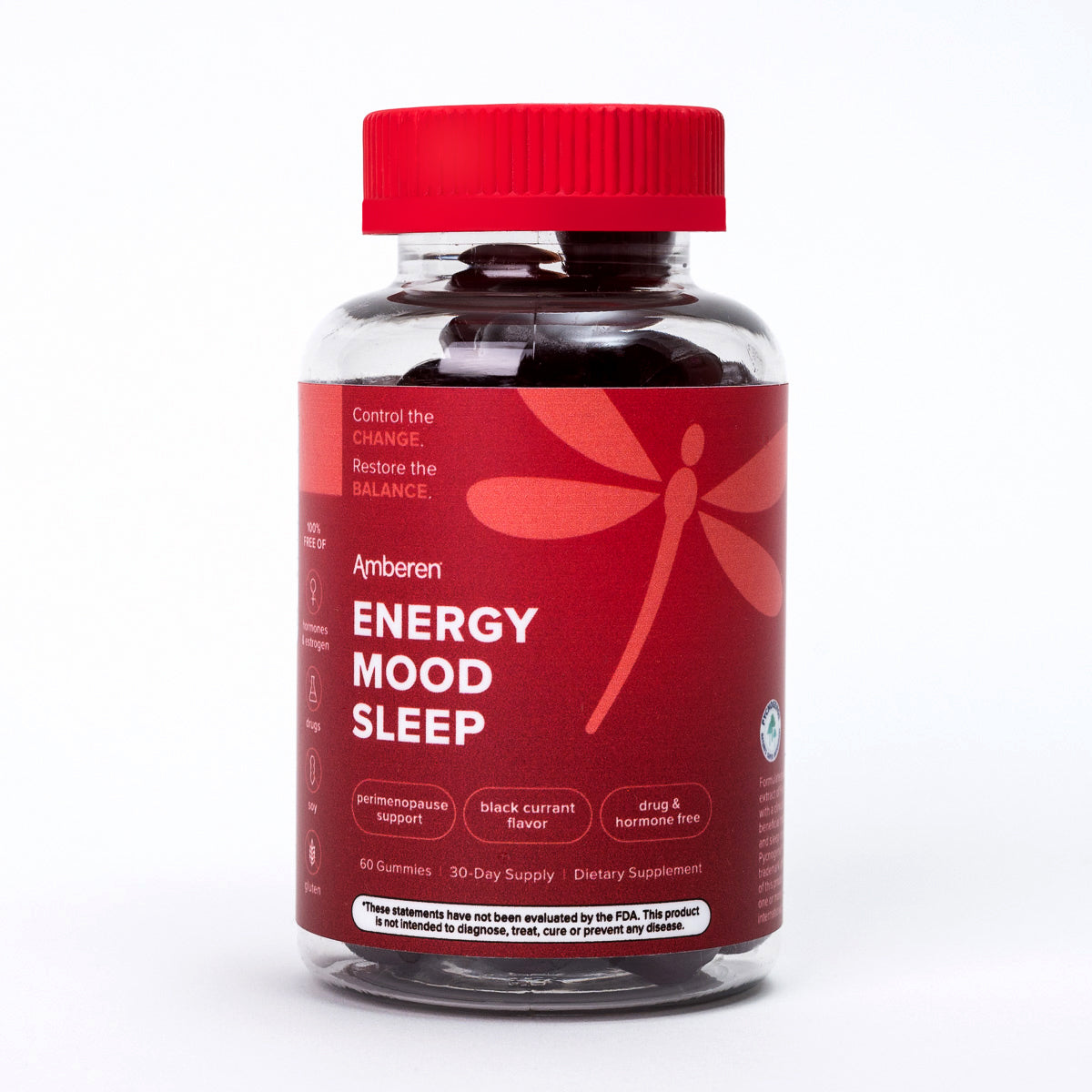
9 common menopause symptoms

The truth? Menopause can make you feel like anything but your normal self, but ironically, that’s perfectly normal (hey, you didn’t always instantaneously burst into sweat or routinely blank on where you left your car keys). As alien as these symptoms may feel, rest assured they’re due to a natural decline in the production of the female sex hormone estrogen. Estrogen regulates the menstrual cycle and affects the reproductive system, body temperature, urinary tract, heart and blood vessels, bones, breasts, skin, hair, mucous membranes, pelvic muscles and brain. Translation: Women can experience symptoms of menopause over their entire body. Here are some of the most common ones:
1. Hot flashes/night sweats
The most common menopause symptom, hot flashes, affects at least 75 percent of women. These instantaneous sweat sessions can occur infrequently or, in severe cases, up to 50 times a day and last anywhere from 3 to 5 minutes each. Afterward, women sometimes experience exhaustion, chills and tightness in the skin, and even nervousness in anticipation of another hot flash episode.
According to an observational study conducted by The Study of Women’s Health Across the Nation (SWAN) and published in 2015 in the Journal of American Medical Association Internal Medicine (JAMA), hot flashes and night sweats can last up to 11.8 years for some women. The median total duration of hot flashes and night sweats among 3,302 women was 7.4 years.
2. Sleeplessness
Have trouble getting a full eight hours in a night? You’re not alone. During the course of perimenopause through menopause, hormone levels of sleep-promoting estrogen and progesterone start to fluctuate erratically, which may disturb sleep. According to the National Sleep Foundation, 59% of perimenopausal women experience difficulty sleeping at least a few nights each week. And the interrupted sleep could stretch on for years. Menopausal women not only sleep fewer hours — hours that are less restful, often due to night sweats — over time, they may suffer from fatigue, difficulty concentrating, moodiness and other problems that impact their lives.
3. Menopausal weight gain
Many women experience weight gain during menopause. Because of the hormonal imbalance, a woman’s body starts working against her by accumulating extra fat, especially around the waist area, as it needs fat cells to produce estrogen. That’s why while nutrition and exercise are critical to weight loss, balancing the hormones is vital to success in maintaining a healthy weight during menopause.
4. Irritability and mood swings
Crankier than normal? Hormonal fluctuations may be to blame. Fluctuating estrogen levels have a direct effect on the brain’s regulation of emotions and can increase the risk of experiencing irritability during menopause. Some women may have more or less pronounced irritability. This has to do with one’s personality, levels of anxiety and an individual’s ability to withstand stress. You may also notice you’re experiencing more mood swings that can run the gamut from sadness to crying. Like irritability, these rollercoasters of emotions are also quite common during menopause, as the body struggles to adjust to fluctuating levels of estrogen and progesterone.
5. Stress and anxiety
Stress and menopause often go hand in hand, thanks in large part to the unpleasant physical symptoms and one’s psychological state. In fact, hot flashes and night sweats are tightly linked with stress and anxiety. The higher your stress levels, the more severe are your hot flashes. The physical impact of stress can lead to additional symptoms, such as lack of energy and difficulty concentrating.
6. Low sex drive
At any given moment, a menopausal woman is dealing with free-falling hormones, hot flashes, exhaustion, weight gain, irritability, vaginal dryness, inability to get aroused and weight gain. Considering your hormones are on the decline, and your decrease in estrogen is causing vaginal dryness and thinning, no wonder sex is the last thing on your mind.
7. Fatigue and low energy
A slowdown in estrogen and progesterone production is partially responsible for your flagging energy. But as we get older, aggressive particles that form during normal reactions damage powerful energy-producing cell structures called mitochondria. In order to maintain an optimal energy level, you must help mitochondria function optimally.
8. Headaches
Studies have shown that headaches tend to be more frequent in women during perimenopause and menopause. The changes in the hormonal profile, such as declining estrogen levels, often trigger menopause headaches.
9. Difficulty concentrating
Do you feel like you’ve been more forgetful lately or are having trouble concentrating? Many women notice cognitive changes during menopause that leave them feeling “fuzzy” or a little (or a lot) less sharp than they used to be. Hormonal imbalance can cause a lack of focus. But other factors, including sleeplessness, mood swings and fatigue, can also contribute to disoriented, less productive or anxious feelings.
For more information about managing menopause symptoms, speak to an Amberen Menopause Specialist by calling (800) 211-8021 Monday – Friday 9 a.m. – 7 p.m. EST.
This blog post and the recommendations made herein are provided for informational purposes only and are not intended to be used as healthcare advice. Individuals are encouraged to consult their healthcare provider with questions about their specific needs. The references provided in this blog post are identified for informational purposes only and such references and the underlying research, including the entities and individuals involved in the underlying research, did not involve Amberen and are not affiliated with Amberen or the makers of Amberen.
Right symptoms. Right phase. Right relief.
Find the Amberen product that’s best suited for your specific symptoms.
- Regular Price
- $29.99
- Sale Price
- Starting at $29.99
- Regular Price
-
- Unit Price
- per
- Regular Price
- $29.99
- Sale Price
- Starting at $29.99
- Regular Price
-
- Unit Price
- per
- Regular Price
- $32.99
- Sale Price
- Starting at $32.99
- Regular Price
-
- Unit Price
- per
- Unit Price
- per



